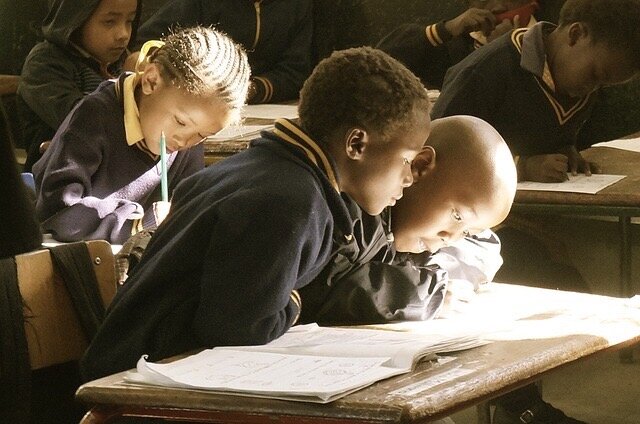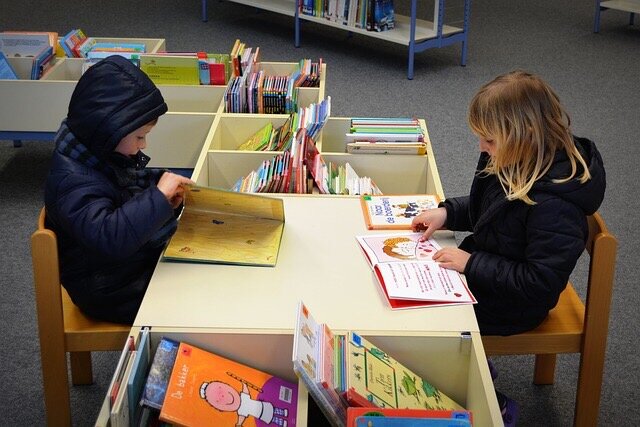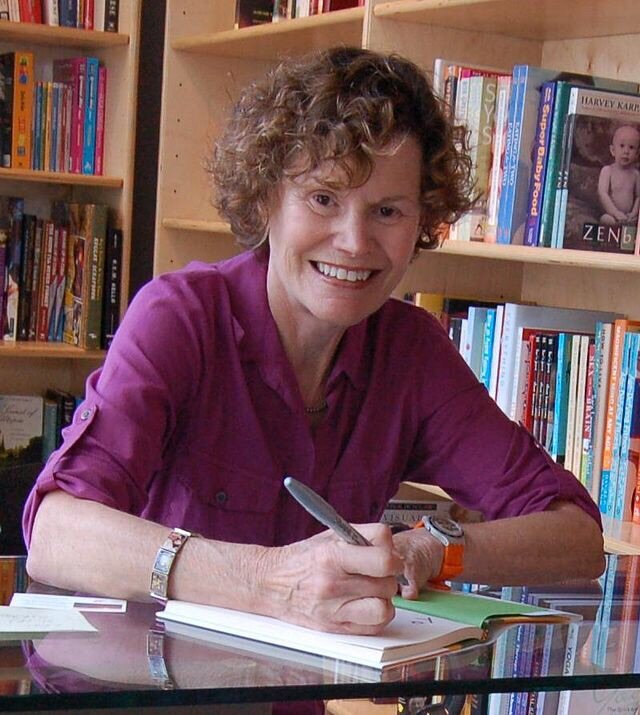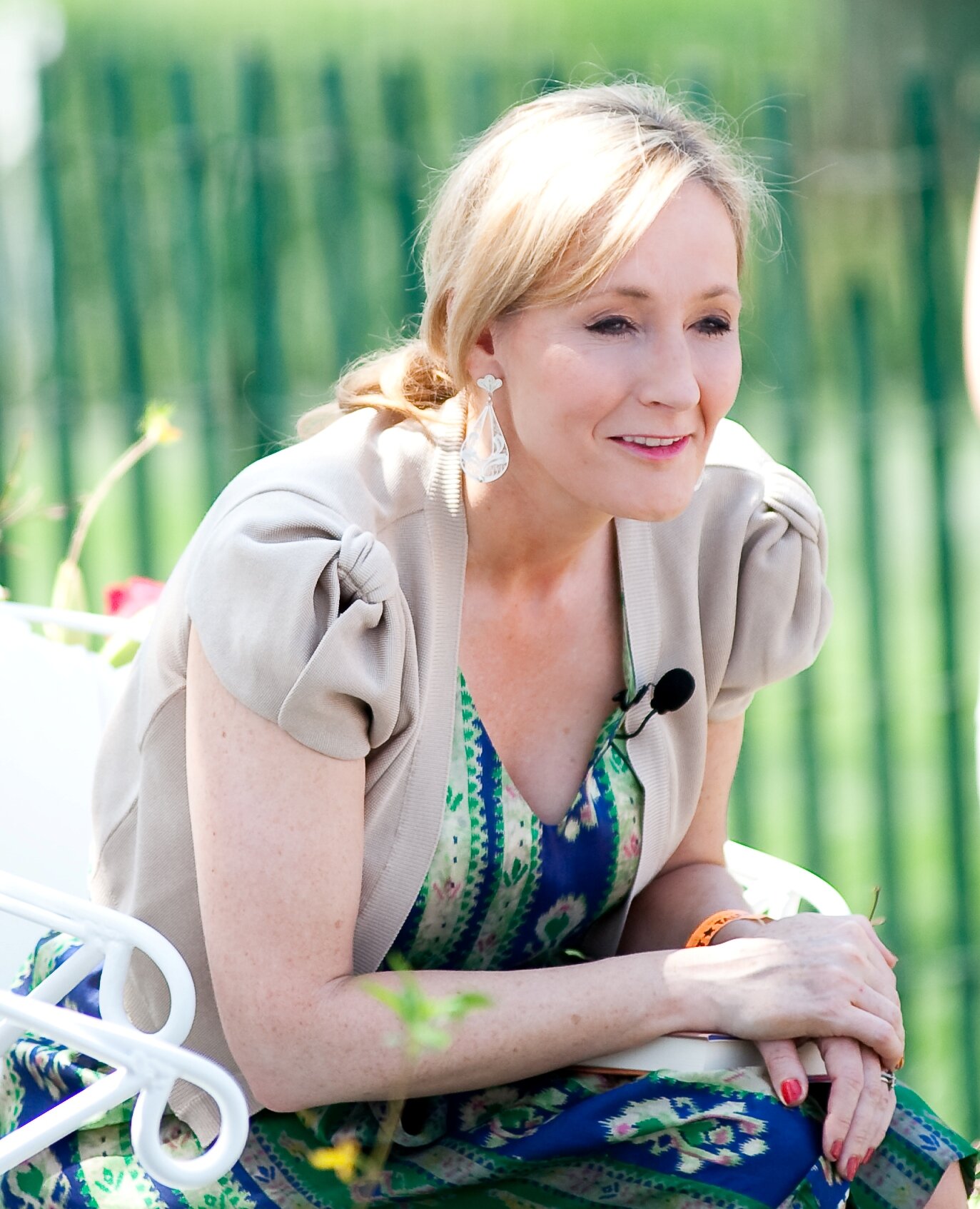The American Library Association (ALA) encourages all Americans to support authors’ efforts to exercise their First Amendment rights even authors who write for children and young adults. How? Banned Books Month highlights many award-winning books for children and Young Adults that have been challenged or banned.
This is always a touchy subject because no one wants to be told how to raise their children. Each year when I am preparing this issue, I discuss the topic of banned books with friends and in peer groups. Books for children, censorship and the question of age appropriateness are always hot topics.
“Censors don’t want children exposed to ideas different from their own. If every individual with an agenda had his/her way, the shelves in the school library would be close to empty.” Judy Blume
FYI – Judy Blume, one of the first authors credited with writing YA novels about subjects such as menstruation, teen sex, masturbation, birth control and death, was named by the ALA as one of the most frequently challenged authors of the 21st century.*
Will you or your child be reading anything from this list of banned books for children and young adults?
Captain Underpants Series by Dav Pilkey - This series follows the escapes of two fictional fourth-grade boys in Ohio who create an underground comic called, Captain Underpants. Their character becomes real when they “accidentally” hypnotize their ill-tempered school principal.
This series has been challenged since its creation because it was perceived as encouraging disruptive behavior and disrespect for authority and its use of ‘potty” language. Captain Underpants and the Sensational Saga of Sir Stinks-A-Lot has been challenged for including a same-sex couple.
Charlotte’s Web by E.B. White was banned in China for having talking animals, and also removed from a school district in Kansas when a group of parents complained that talking animals was the work of the devil.
The Harry Potter series by J.K. Rowling – All seven books were banned at a Catholic school in Wakefield, Massachusetts after their pastor complained about sorcery/witchcraft in the book.
James and the Giant Peach by Roald Dahl – has been challenged/banned by groups because of mentions in the text of snuff, tobacco, whiskey and the word, “ass.” Also banned in Wisconsin in 1999 because of concerns about a scene in the book where a spider licks its lips in what could be interpreted as a sexual/seductive manner.
Tarzan by Edgar Rice Burroughs – pulled from the shelves of a public library in Tarzana, California because there was no evidence Jane and Tarzan were married before they lived together in the trees.
Where the Wild Things Are by Maurice Sendak – was banned in several locations after parents protested about the character Max being sent to bed without his supper as punishment and supernatural themes in the book.
Harriet the Spy by Louise Fitzhugh – banned from several school libraries in the 1960’s because parents felt Harriet’s spying was more like gossiping and slander than observation and her behavior which set a bad example for other children was hurtful and unbecoming.
The Lorax by Dr. Seuss – challenged by parents who objected to the word “stupid” and the logging industry in protest of the book’s environmental message.
George* by Alex Gino - George is the story of a young transgender girl, Melissa. She is a fourth grader struggling to be accepted.
This book has been challenged, banned, restricted, and hidden to avoid controversy because of its LGBTQIA+ content and its transgender main character. Objections were based on a belief that schools and libraries shouldn’t expose children to books that require discussion about sexual orientation or contain sexual references. Other challenges contend that its subject matter conflicts with certain religious viewpoints and “traditional family structure.”
Beyond Magenta: Transgender Teens Speak Out* by Susan Kuklin - This book examines the lives, loves, and struggles of six transgender teens through interviews and photographs.
It has been challenged for LGBTQIA+ content. Concerns were expressed about its effect on young readers, sexually explicit content, and bias by the author in support of transgender teens.
Prince & Knight* by Daniel Haack, illustrated by Stevie Lewis
This book tells the story of a young prince who falls in love with a knight after they battle a terrible dragon and save the kingdom. The prince and the knight marry at the end of the book.
It has been challenged and restricted for LGBTQIA+ content and featuring a gay marriage. Opponents of the book claim it deliberately attempts to indoctrinate young children to accept gay marriage and has the potential to cause confusion, curiosity, and gender dysphoria. Concerns were also raised about its themes of acceptance conflicting with religious viewpoints.
I Am Jazz* by Jessica Herthel and Jazz Jennings, illustrated by Shelagh McNicholas
This book is the story of the experiences of a transgender child. It is based on the real-life experiences of Jazz Jennings who has become a spokesperson for transkids.
It has been challenged and relocated for LGBTQIA+ content and its transgender main character. Concerns were expressed because this book confronts a topic that is “sensitive, controversial, and politically charged.”
Drama* written and illustrated by Raina Telgemeier - This is a graphic novel centering on the main character, Callie a middle school student who loves theater and volunteers in her school’s drama department. Along with Callie, readers get a first-hand glimpse of young love, crushes, friendships and building relationships in a supportive environment.
It has been challenged for LGBTQIA+ content and for concerns it goes against “family values/morals” because it accepts and normalizes same sex relationships.
And Tango Makes Three* by Peter Parnell and Justin Richardson illustrated by Henry Cole
This book tells the story of two male penguins who create a family together after being given an egg to hatch by the zookeeper. It’s based on the true story of two male penguins in the Central Park Zoo in New York.
It has been challenged and relocated for LGBTQIA+ content.
ANYTHING BY JUDY BLUME but specifically:
Iggie’s House - challenged for age appropriateness for discussing racism.
Are You There God? It’s Me, Margaret - challenged for age appropriateness for discussing menstruation.
Blubber - challenged for age appropriateness for discussing bullying.
It’s Not the end of the World, Just as Long as We are Together - challenged for age appropriateness for discussing divorce.
Deenie, Then Again, Maybe I Won’t - challenged for age appropriateness for discussing masturbation.
Forever - challenged for age appropriateness for discussing sexuality.
Here’s to You, Rachel Robinson - challenged for age appropriateness for discussing family issues.
Who knew someone would have a problem with kids reading the dictionary?
The America Heritage Dictionary and Merriam Webster’s Dictionary have both been banned in certain school districts because of words deemed inappropriate. The Anchorage School Board banned The American Heritage Dictionary in 1987 for objectionable entries such as the slang definitions of words such as “bed,” “balls” and “knocker.”
*Most frequently challenged authors of the 21st century, American Library Association, retrieved 2 Sept 2018.
Some information for this article was taken from:
http://theweek.com/articles/459795/17-americas-most-surprising-banned-books
Photo credits:
Judy Blume: By JudyBlume2009.jpg: Carl Lender[1] of Flickr.comderivative work: Solid State Survivor (talk) - JudyBlume2009.jpg, CC BY 2.0, https://commons.wikimedia.org/w/index.php?curid=7647745
J.K. Rowling: By Daniel Ogren - Flickr: 100405_EasterEggRoll_683, CC BY 2.0, https://commons.wikimedia.org/w/index.php?curid=15164977












